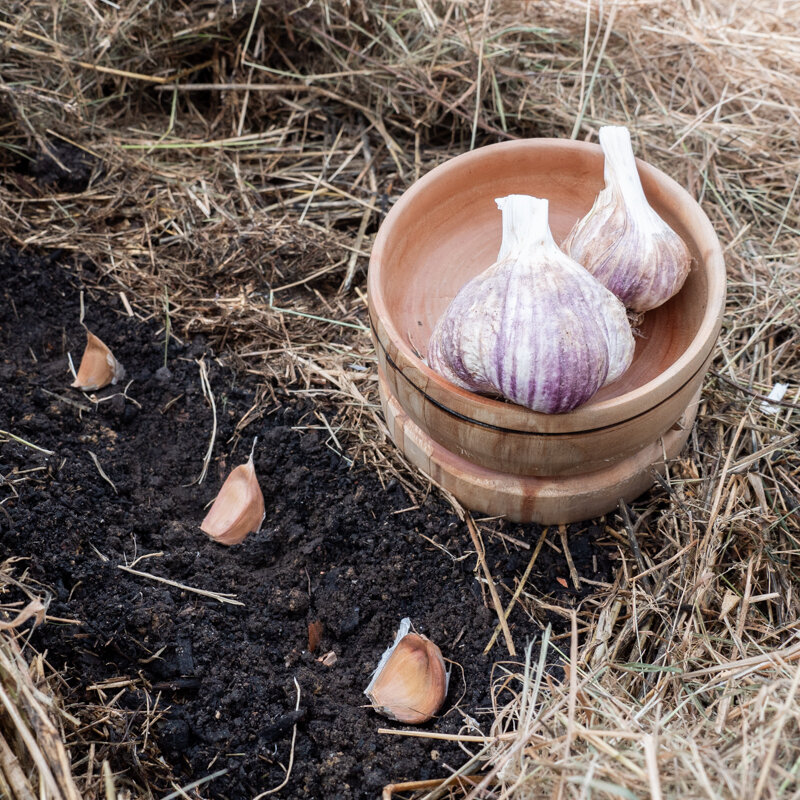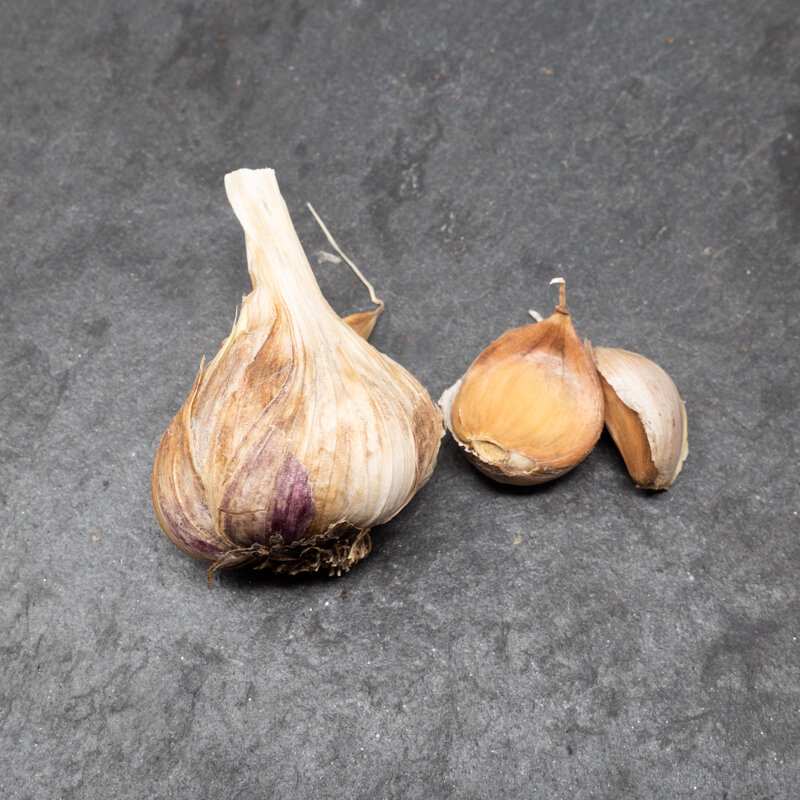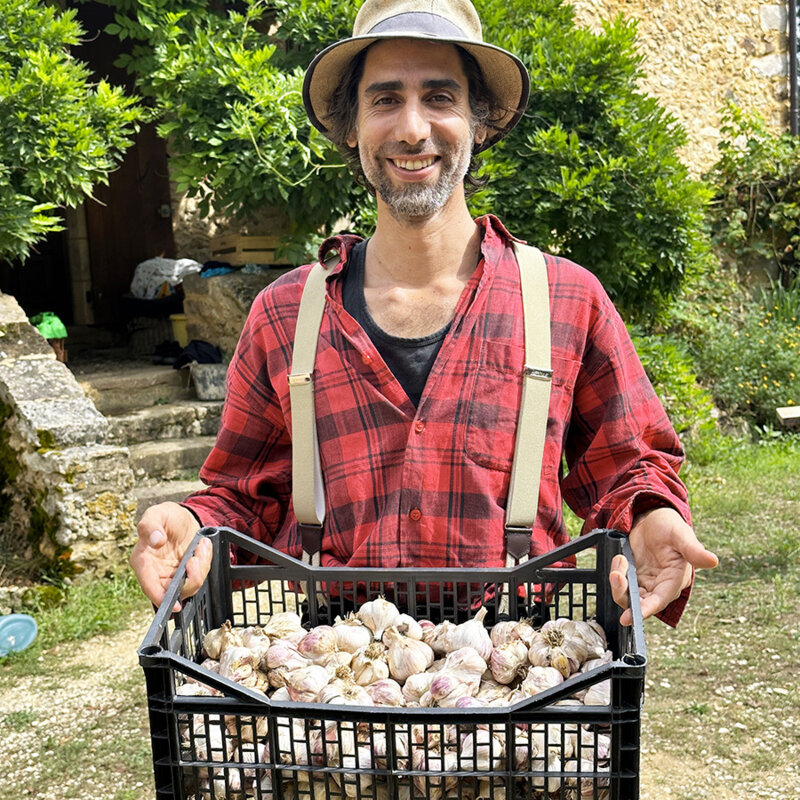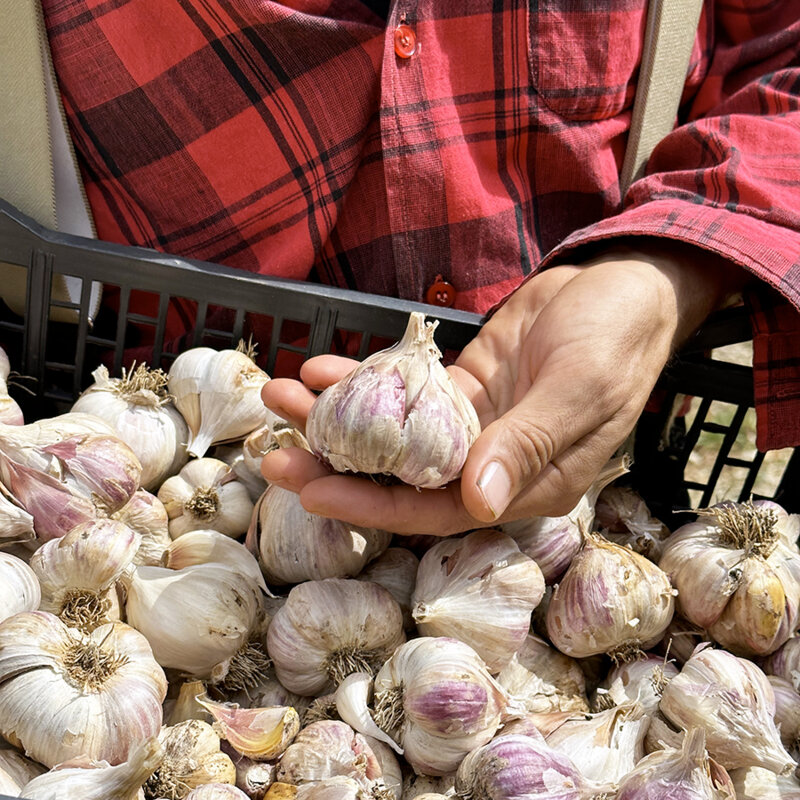Purple Garlic Bulbs "De Cagnolle" AB - 250 g - Allium sativum
** Garlic bulbs will be available for sale in mid-October. You can set up an alert to be informed by e-mail as soon as they are available **.
This very early autumn variety, adapted to cool regions, produces large purple or white bulbs with purple stripes, with 10 to 15 cloves. This strong-tasting purple garlic is renowned for its high yield and good shelf life.
Where and when to plant garlic cloves?
Garlic appreciates all types of soil, provided they are well aerated and drained, and amended the season before planting, as well as sunny exposures. In compact, damp soils, cultivate on raised beds 10 to 15 cm high to facilitate water drainage.
Autumn garlic is planted from September to November.
How to plant garlic cloves?
To plant garlic cloves correctly and obtain a good harvest, you need to
- choose healthy cloves of the right size;
- draw a furrow or a line on either side of the cultivation line, spacing each line 30 cm apart;
- plant the cloves, pointing upwards, 5 cm deep in well-drained soil, every 10 to 15 cm.
Garlic care
After planting, garlic requires very little maintenance, and only a few hoeings are needed to eliminate weeds.
Water only if the soil is too dry, during planting and bulb formation. Garlic plants can be mulched in dry periods, but this should be avoided in humid regions, as excess water causes the bulbs to rot.
When and how to harvest garlic?
All parts of garlic can be eaten, and it can be harvested at all stages of maturity: young plants or carnations, fresh bulbs, mature bulbs. Autumn garlic harvests run from April to July.
Carnation: from April onwards
Garlic is harvested as needed, before the bulb has formed, by plucking from the base. It's eaten like chives, and makes a wonderful accompaniment to omelettes, salads, pestos and more. For carnation production, the pods can be planted every 3 or 5 cm on the row.
Fresh or "green" bulbs: in May
Fresh young bulbs are full of water and have a sweeter taste than mature bulbs. They can be harvested as needed.
Mature bulbs: June to July
Mature bulbs, intended for storage, are harvested when the upper half of the leaves are dry. If the weather is dry, uproot the garlic plants and leave them to dry out on the ground for a few days. If rain or too much heat is forecast for the days following harvest, spread them out in a protected area before storing.
Garlic bulb storage
For long-lasting storage, keep garlic bulbs dry, away from light and in a cool, well-ventilated room. Garlic can be stored in different ways: in bunches, braids, nets or crates.
Germidour" violet garlic can be stored for 4 to 8 months.
Garlic in the vegetable garden: companion plants and crop rotation
Avoid planting garlic, or any other plant in the same family (leek, shallot, onion, etc.), in the same place for at least 4 to 5 years. Garlic is generally grown after a fruiting vegetable (tomato, zucchini, eggplant, bell pepper, etc.) and before a fabaceae (bean, pea, bean, lentil, etc.).
In the vegetable garden, garlic likes to be close to :
- beet ;
- chamomile ;
- carrot ;
- celery ;
- strawberries ;
- lettuce ;
- tomatoes.
Keep away from :
- asparagus ;
- cabbage
- broad bean;
- beans;
- peas.














